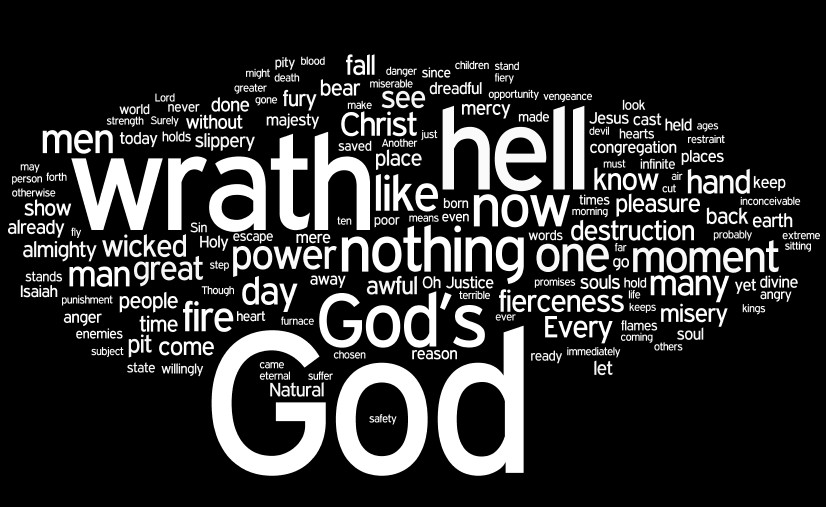 Different metaphors for God make for very different spiritual journeys. It is an axiom that we become like the god we worship. Worship an angry god; you become angry. Worship a punitive god, you become punitive. Worship a hypocritical god – one who says “love, love love,” but gets his revenge in the end with a sword… and we become hypocritical.
Different metaphors for God make for very different spiritual journeys. It is an axiom that we become like the god we worship. Worship an angry god; you become angry. Worship a punitive god, you become punitive. Worship a hypocritical god – one who says “love, love love,” but gets his revenge in the end with a sword… and we become hypocritical.

“Imagination” Artist Bill Mack
LINK >>
So it matters how we imagine God. It matters a lot.
Some of my good Christian friends bristle at the idea of “imagining” God. They feel that our scriptures and tradition give us such a clear picture of the ways of God, that there is little left to imagine. “Revelation” is the word they prefer; God’s nature has been revealed to us, God’s attributes have been revealed to us.
But that is not the testimony of our tradition. Our tradition has always insisted that God is bigger than can be contained in any thought or image. “Transcendent “is the word we have used. No image, no principle, no attribute we imagine… is big enough to contain the Divine.
But notwithstanding this core principle of our faith, our Christian journey has been one long exercise in trying to reduce the irreducible. Since the introduction of Medieval Scholasticism and Enlightenment Rationalism were inserted into our tradition, we’ve been on a tear to figure out, and pin down, God.
 I’ve got a book left over from graduate school called Systematic Theology. In it, there is a section titled “The Attributes of God.” Chapter after chapter, the author leads us on an exercise in pinning down the un-pin-down-able, insisting that God is this way, and is not that way.
I’ve got a book left over from graduate school called Systematic Theology. In it, there is a section titled “The Attributes of God.” Chapter after chapter, the author leads us on an exercise in pinning down the un-pin-down-able, insisting that God is this way, and is not that way.And this would be fine…
Except that our images of God are so powerfully deterministic in how we live.
And we Christians haven’t been living all that well this last generation or two.

metaphors for God from the Psalms
thanks to Dale Ridge Community Church
It is a basic tenet of our faith that all we have to talk about God are metaphors. No image we can hold in our brains or speak with our words can contain the expansiveness of God. Consequently, all religious thought and dialogue is a struggle with vocabulary, a struggle to frame partial-truth images that help us make meaning of our experience of the Divine.
That being the case, when one of our images stops serving us well, it has always been our way to cast about to find better, partial images.
So, in this series of posts, I’ll be suggesting it’s time to update our god-images; time to trade our god in for a new one. It’s a scary proposition for us religious folks, but it is the only way to navigate times of seismic upheaval like the one we’re currently experiencing